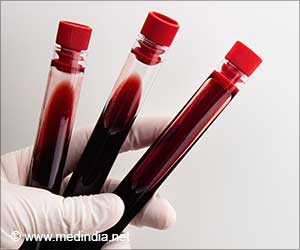A new study by Swedish researchers has found that anti-rheumatic treatments may not confer an increased susceptibility to cancer(lymphoma).
There has been an increasing fear regarding the elevated risk of lymphoma associated with rheumatoid arthritis treatment A new study by Swedish researchers has found that such treatments may not confer an increased susceptibility to cancer, the results of which can be seen in the latest issue of Arthritis & Rheumatism journal.
The risk of cancer has been found to increase with worsening of the chronic inflammatory process. In other words, a cause-effect relationship has been established with the disease severity and cancer risk. Infact the drugs given for symptomatic treatment of rheumatoid arthritis, which, prevent further progress of the inflammation may actually reduce the cancer risk.Rheumatoid arthritis is a progressive disease, characterized by inflammation of joints resulting in pain, joint damage, immobility and finally disability. Nearly 2 million Americans have been diagnosed with the chronic disease, according to estimates by the Arthritis Foundation. Non-steroidal anti-inflammatory drugs (NSAIDs), disease-modifying anti-rheumatic drugs (DMARDs), biologic response modifiers (new generation drugs) and analgesics are currently being given for treatment.
The researchers studied data obtained from nearly 75,000 rheumatoid arthritis patients. Amongst these, 378 patients developed lymphoma during the course of treatment. The data obtained was compared with that obtained from 378 healthy controls. The severity of the disease (low, medium, high), the duration of the disease, the level of inflammation or tenderness in the joints was some of the factors taken into consideration.
The results of the analysis established that individuals with high activity (severe disease) had a 70-fold increased risk of developing lymphoma. The severity of involvement of knees, hands and feet within the first year of diagnosis was also found to confer an increased risk. The lymphoma risk was much lower (8 fold) in those who had medium disease activity.
Furthermore, no increased risk of lymphoma was found in those who were given anti-rheumatic drugs (DMARDS), including the drug methotrexate (anti-cancer drug). No increased risk could also be documented with use of steroids or NSAIDs. Surprisingly, the incidence of lymphoma in those who were given corticosteriods injections was the lowest, probably highlighting its role in cancer prevention.
The results of the present study highlight the need for early identification and aggressive treatment to prevent worsening of the disease. To conclude, the more severe the disease, the higher is the cancer risk. The provision of appropriate anti-rheumatic treatment can decrease the disease related complications.
Advertisement











